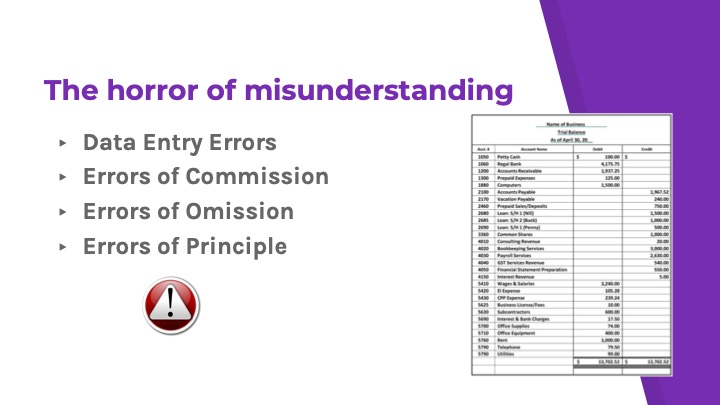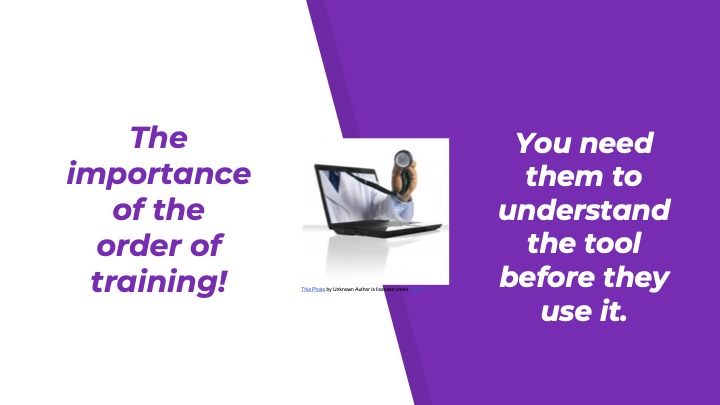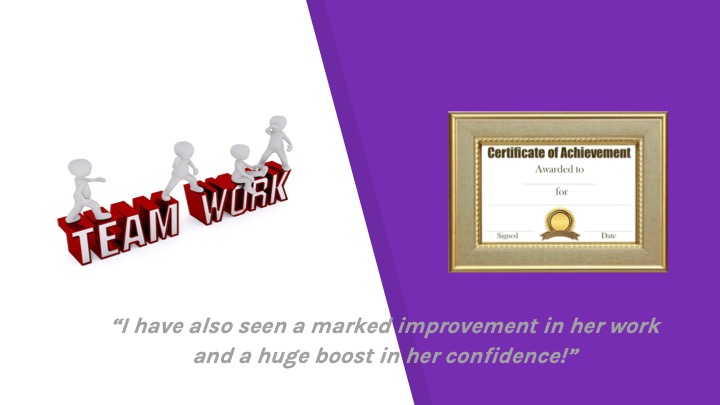This post is the second half of a 2 part series. Click here to read part 1
Shelley:
Great, thank you so much Dianne – such great information and so much of what we hear from the industry and from our students. And we’ve talked about confidence. So – we’ve heard repeatedly from our students that one of their biggest takeaways from our courses is the new level of confidence they have in their knowledge.
We also hear from the firm owners and supervisors that the level of the improvement in an employee’s work is very positive. Even the simple use of the correct bookkeeping and accounting terminology can go a long way in communicating with the team members and the accountant and clients. The doubt that comes with second guessing oneself has repercussions for the whole team.
There is less fear in asking questions when they have a handle on the basics. Investing in providing that growth through education creates a powerful team member that wants to contribute. As we know, errors can be embarrassing at best, but misleading at worst. Data entry errors – you know, cloud accounting eliminates this error when we’re speaking to amounts by using automation and third-party products that bring data into our accounting software.

Errors of Commission – this is where transactions are recorded incorrectly, such as using the wrong account. We need to know how that external source of data is set up, or linked to the accounting software. Sometimes we fall into that “set and forget”.
Errors of Omission – transactions are overlooked and not recorded. Are we getting duplicate entries? Either by manual – or again – by bank feeds? Or was there a glitch – and the entry was missed entirely?
Errors of Principle – wrong accounting treatment applied to transactions, so not in accordance with Generally Accepted Accounting Principles – or “GAAP” as most of us know it. Are they running on a cash basis rather than the accrual basis that may be a requirement for their particular industry?
At a recent CPB Canada regional meeting, a CPA presented to bookkeepers and bookkeeping firms the steps they take after receiving a year-end file. First thing, do the bank and credit cards reconcile with all the outstanding items explained? No? If no, then the file will be returned.
The second thing they’re looking at – does the retained earnings account match the prior year? If no – again – you can guess it – the file is returned. And the third one is, do the GST/HST filings match the revenue on the income statement for the year? If no? You guessed it – it’s going back to the bookkeeper or the bookkeeping firm.
Training will provide the team members with the skills to review their own work before presenting final financial reports to team leaders or to the accountant. One of the initial steps is being comfortable with the task of reviewing and understanding the Trial Balance report, the normal balances of accounts, and knowing how to spot and find errors. Once these skills are developed by the entire team, they will require less supervision and it encourages the team to work together and to review each other’s work.

We believe a software training is, of course, not bookkeeping training. Cloud accounting technology tools are a powerful collaborative tool when backed up with a solid foundational knowledge of manual bookkeeping and will create a stronger team. Software really should be a tool in the toolbox for your team to be more efficient, productive, and assist them in achieving a more advisory bookkeeping role. An understanding of technical bookkeeping will make training – or learning of cloud accounting technology – and whatever technology comes in the future, go much smoother.
Supporting the career path for our employees provides value to your firm, helping with retention and ensuring consistency in the quality of the work your firm provides.
We believe strongly that we all play a part in raising up the bookkeeping profession. As part of this, we encourage our students to become members of the Certified Professional Bookkeepers of Canada and work their way to achieving the Certified Professional Bookkeeper (CPB) accreditation.
In fact, our courses are set up to teach the knowledge required to pass their exams, as these exams at the various certification levels require manual bookkeeping knowledge. CPB Canada is a resource for continuous learning and community support, and it’s a way for our community to come together to make our profession and our teams better. A team working towards this goal together – and at various levels – can help each other along the way. What a great way to build team spirit!
I cannot imagine the results of a company’s books if all that is used is data entry and not the knowledge that a trained and skilled bookkeeping team can provide.

